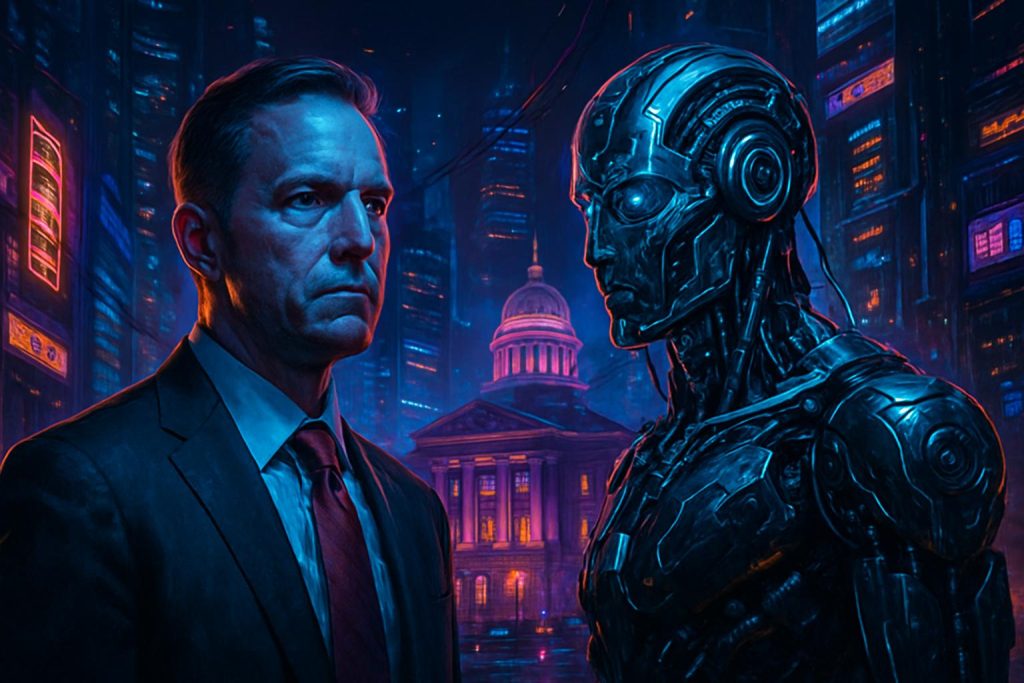Public trust in government is often a fragile thing, shaped by the everyday frustrations of slow services, inefficiencies, or unanswered needs. Can smarter technology fix this disconnect, or will it create new issues that deepen the divide?
Can AI Rebuild Trust in Government? Denver’s Mayor Thinks So examines how Denver Mayor Mike Johnston is relying on emerging tech to optimize city operations and rebuild public trust. Johnston and Denver’s Chief AI and Information Officer, Suma Nallapati, are looking into leveraging artificial intelligence to improve municipal services, reduce inefficiencies, and make government interactions more seamless for residents. Proposed uses include AI-powered tools for handling noise complaints, speeding up permits, and addressing road maintenance issues. Denver has already made initial steps by implementing a chatbot named “Sunny” to address resident questions and using AI-equipped cameras to support law enforcement.
However, these efforts come with concerns. Critics highlight risks such as potential bias, job displacement, and diverging from generating genuine public value. Some city employees fear that outsourcing functionality to private companies could diminish trust instead of rebuilding it. On the technical side, ethical questions linger about addressing biased outputs and reducing inaccuracies from AI systems. Johnston emphasizes the need for safeguards and transparency while maintaining that sensitive matters, like sentencing or parole decisions, should not be automated.
Why It’s Worth Discussing
This initiative in Denver stands out due to its approach to rethinking how local government can evolve through technology. By introducing innovative solutions to persistent challenges, Johnston’s team aims to get rid of repetitive tasks and improve the effectiveness of public services. If executed carefully, this approach could serve as an example for other cities and demonstrate how local governments can function effectively despite financial constraints, such as Denver’s $250 million shortfall. Still, it raises important questions about how governments can align modern solutions with public accountability and ethical practice.
Benefits
- Quicker delivery of services to residents, helping address common issues like complaints or permit applications more efficiently.
- Decreased workload for city staff, allowing them to handle more crucial or impactful responsibilities.
- The potential for creative use of technology in areas such as law enforcement, permits, and managing municipal budgets under financial constraints.
Concerns
- Reliance on technology provided by private vendors might create trust challenges for residents hesitant about privatization.
- Automation poses risks of displacing workers or fostering a sense of weakened public services.
- Ethical oversight remains a priority, as these systems currently have tendencies toward biases and inaccuracies that could negatively affect residents.
Possible Business Use Cases
- Develop a platform focused on transparent oversight of AI tools for local governments, including resources for detecting and addressing bias.
- Establish a subscription service for custom chatbot solutions aimed at helping public offices manage inquiries more effectively.
- Provide consulting services to guide municipal agencies in appropriately incorporating technology while maintaining public trust and openness.
As cities like Denver examine how technology can help better serve their communities, they face two significant challenges at the same time: modernization and ensuring accountability. These tools can reshape public service in meaningful ways when used responsibly, yet they also introduce discussions around the continuing role of traditional government practices in a tech-centered age. The decisions being made now will have a long-term impact on how people engage with their local institutions, leading us to reflect on what these changes mean for the future. Balancing efficiency, fairness, and transparency is not just a matter of technology—it’s a challenge for society as a whole.
—
You can read the original article here.
Image Credit: GPT Image 1 / Cyberpunk.
Make your own custom style AI image with lots of cool settings!
—
Want to get the RAIZOR Report with all the latest AI news, tools, and jobs? We even have a daily mini-podcast version for all the news in less than 5 minutes! You can subscribe here.
RAIZOR helps our clients cut costs, save time, and boost revenue with custom AI automations. Book an Exploration Call if you’d like to learn more about how we can help you grow your business.







